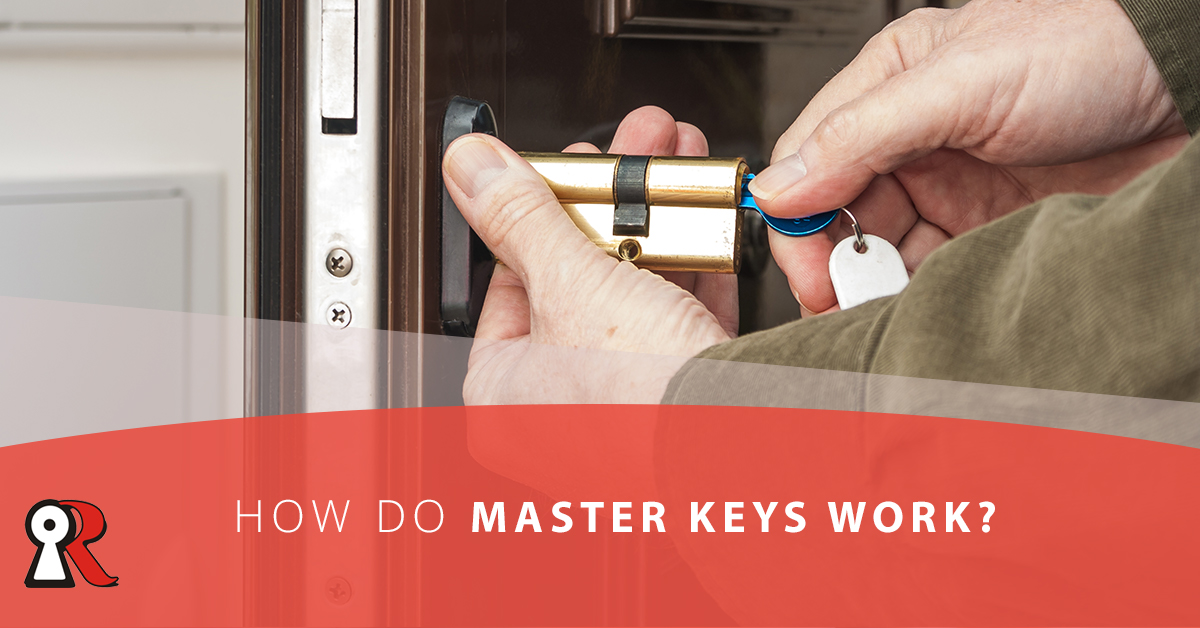In the complex field of security, the master key emerges as a versatile and powerful tool, capable of offering unprecedented access control. Unlike traditional keys, which are intended to operate a single lock, the master key possesses the unique ability to open multiple locks that have been properly configured or “trained” to recognize it.
This instrument not only symbolizes authority and effective management of spaces, but also represents a security enigma, whose characteristics and applications deserve to be explored in detail.
Types Of Master Keys
The flexibility of the master key system is evident in its variations, designed to meet specific security and access needs:
General master key: This is the all-powerful key within a system, capable of opening all the locks included in it. Its use is normally reserved for the highest levels of administration.
Group master key: Designed to offer access to a specific set of locks within the system, it facilitates the management of differentiated areas or sections, granting an additional layer of control.
Single master key: Although it primarily opens a single lock, this key can also operate other common locks within a group, providing flexibility in a restricted access framework.
Advantages of Master Keys
Master keys offer a number of important advantages, especially in terms of convenience and security, which make them a valuable option for access management.
Their main benefit is the convenience they provide by eliminating the need to carry a heavy bunch of keys, greatly simplifying access to various areas using a single instrument.
From a security perspective, in the event that a master key is lost, the solution does not require the complete replacement of the lock system; instead, it is sufficient to reprogram the affected locks to maintain security.
In addition, these keys allow for differentiated access control, meaning that it is possible to manage in detail who has access to which areas, thereby significantly improving both security and privacy.
What Are The Disadvantages Of Master Keys?
However, the use of master keys also involves certain challenges that cannot be ignored.
Additionally, the cost of implementing a system that works with master keys and master locks tends to be higher compared to more traditional security solutions. This price difference is due to the complexity and effectiveness of these systems, which implies a higher initial investment for those who decide to adopt them.
Why Are Master Keys Interesting?
The versatility of master keys makes them essential in a wide range of environments, from complex infrastructures to community and corporate contexts.
In the hospitality sector, such as hotels, and in spaces such as offices, schools and hospitals, these keys are essential for efficient access management, which in turn improves daily operations. They make it easier for managers to control those accesses which areas, resulting in a more agile and secure organization.
In residential communities, master keys allow easy access to common spaces, eliminating the need for multiple keys for different areas. In the business environment, they enable employees to move freely around different work areas, boosting productivity and collaboration.
It is crucial to keep these keys in secure locations to prevent loss or theft, which could put the security of the facilities at risk.
What Can Replace Master Keys?
In view of this, the master key that is potent in terms of access and security deployment can be substituted or augmented by other systems or technologies that are more secure, flexible, and manageable.
Some of these alternatives include:
Electronic access systems: The above use access cards, numeric codes, or other communication mobile devices for unlocking or opening of different areas or sections in building. Such systems can be tailored to offer a person’s specific keys, and they do not require change of hardware in cases of loss or theft.
Biometric access controls: These implement technologies that can identify persons through the use of certain physical attributes like fingerprints, cameras for facial recognition or the use of Iridology for example, iris scanning for access. Such managed systems are considered very secure, because it is nearly impossible to forge someone’s biometric traits.
Smartphone-based systems: Smartphones application with the ability to open or restrict access through Bluetooth, NFC or QR code. These systems are preferred for the fact that they enable the access to be controlled remotely and the permissions adjusted in real-time.
Numeric keypads: One of the substitutes for master keys is systems that presuppose the use of a numeric code for the entry. They may not be as secure should the code get into the wrong hands though they enable quick change of the code without requiring change of the lock physically.
Smart locks: With these locks one can manage access via the Internet, one can grant temporary or permanent ‘‘digital keys’’ and track who enters when. They are particularly suitable for application in the situations where dynamicity and option to control the access in real time is desired.
Reconfigurable electronic key systems: It is possible to electronically reprogram some of the systems so the locks respond to new keys; thus, it is not essential to change a lock when the key is lost or when access rights of an individual should be removed.
Keep an eye for more news & updates on MyStoriesList.Com!
